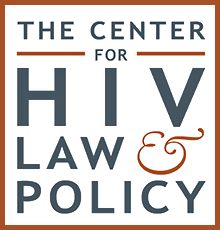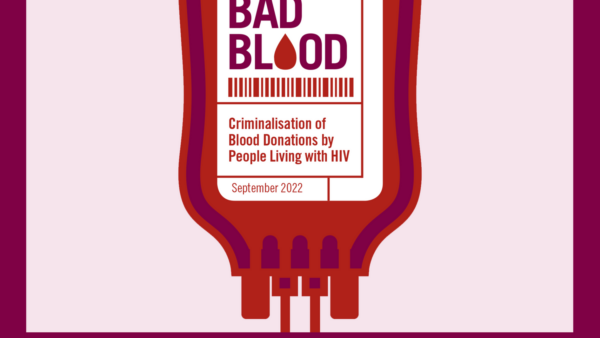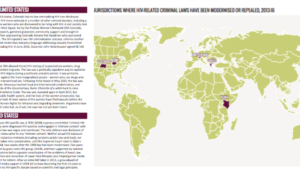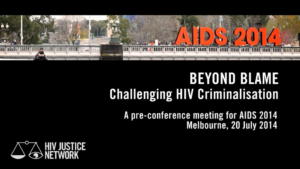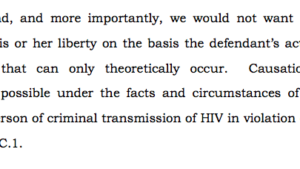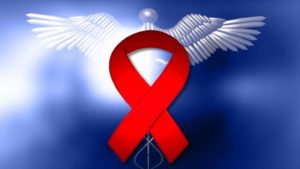Overview
Iowa criminalises HIV ‘exposure’ through a general infectious disease law. Previously, the law was HIV-specific, but in 2014 Iowa ‘modernised’ the law to significantly reduce its scope. However, people living with HIV have been prosecuted both before and after the 2014 reform.
Prior to reform, the offence of ‘criminal transmission of HIV’ made it a crime for people living with HIV to engage in ‘intimate contact’, transfer or donate blood, organs, or fluids, or share used drug paraphernalia. ‘Intimate contact’ was defined broadly to include the intentional exposure of the body to the fluids of another in a manner that could result in transmission. Despite its name the law explicitly did not require transmission. It was an affirmative defence to disclose HIV-positive status prior to contact. The offence was a class B felony carrying a penalty of up to 25 years’ imprisonment, and those convicted were also required to register as sex offenders.
We are aware of at least four cases under the pre-reform law, including landmark legal proceedings in the case of Nick Rhoades, who was arrested in 2008 for having consensual protected sex without disclosing his status. Despite the facts that there was only one incident and a condom was used, he was given the maximum sentence of 25 years’ imprisonment and forced to register as a sex offender. Protracted criminal proceedings over the following six years resulted in his conviction being overturned by the Iowa Supreme Court on the basis that there was no prospect of transmission in the case, which was required under the law.
Around the same time, Iowan organisations began to organise to modernise the law in the state. These reform efforts were led by local HIV organisation, CHAIN, for more than five years with support from other organisations such as local LGBTQ organisation, One Iowa. In 2014 these efforts were successful in pushing the legislature to amend the law, when an amending bill was passed by both the Senate and House in Iowa, before being signed into law by the Governor in May 2014.
This bill made significant changes to the ‘exposure’ law. Firstly, the provision was broadened out to other infectious diseases, no longer limiting it purely to HIV. Categories of culpability were created based on intent and transmission; intentional transmission remains a class B felony, while intentional exposure without transmission and reckless exposure with transmission are both class D felonies, punishable with up to five years’ imprisonment and a fine, while reckless exposure without transmission is a serious misdemeanour with a penalty of up to one year imprisonment and a fine. Importantly, ‘exposure’ is defined as requiring conduct which poses a ‘substantial risk’ of transmission.
A number of safeguards and defences were built into the new law. Taking practical measures to prevent transmission, such as compliance with treatment regimens, is a defence to prosecution, as is disclosing status and offering to take such measures which the other party rejects, while disclosure of status in itself continues to be a defence. The law explicitly excludes vertical transmission through pregnancy from its scope, and also states that ‘exposure’ alone is insufficient to prove intent to transmit. The reform also removed the requirement to register as a sex offender for this provision, and retroactively applied this to remove those already on the register.
Despite the scope of the law being narrowed, a number of prosecutions of people living with HIV have been seen since the 2014 reform. The majority of these relate to incidents of sexual ‘exposure’, however a 2017 case saw a woman charged under the law after allegedly biting a person and drawing blood during a fight. The outcome of the case is not known.
Laws under the Public Health Title also regulate those living with HIV. There are misdemeanour offences of knowing ‘exposure’ to communicable diseases and supplying false information in relation to a blood donation (see our report, Bad Blood, for a global analysis of the criminalisation of blood donations). Health officials also have the power to enforce treatment, quarantine, and isolation on people living with diseases.
For a detailed analysis of HIV criminalisation in Iowa, as well as all other US states, see the Center for HIV Law and Policy report, HIV Criminalisation in the United States: a Sourcebook on State and Federal HIV Criminal Law and Practice.
Laws
Iowa Code § 709D.3
Criminal transmission of a contagious or infectious disease
- A person commits a class “B” felony when the person knows the person is infected with a contagious or infectious disease and exposes an uninfected person to the contagious or infectious disease with the intent that the uninfected person contract the contagious or infectious disease, and the conduct results in the uninfected person becoming infected with the contagious or infectious disease.
- A person commits a class “D” felony when the person knows the person is infected with a contagious or infectious disease and exposes an uninfected person to the contagious or infectious disease with the intent that the uninfected person contract the contagious or infectious disease, but the conduct does not result in the uninfected person becoming infected with the contagious or infectious disease.
- A person commits a class “D” felony when the person knows the person is infected with a contagious or infectious disease and exposes an uninfected person to the contagious or infectious disease acting with a reckless disregard as to whether the uninfected person contracts the contagious or infectious disease, and the conduct results in the uninfected person becoming infected with the contagious or infectious disease.
- A person commits a serious misdemeanor when the person knows the person is infected with a contagious or infectious disease and exposes an uninfected person to the contagious or infectious disease acting with a reckless disregard as to whether the uninfected person contracts the contagious or infectious disease, but the conduct does not result in the uninfected person becoming infected with the contagious or infectious disease.
- The act of becoming pregnant while infected with a contagious or infectious disease, continuing a pregnancy while infected with a contagious or infectious disease, or declining treatment for a contagious or infectious disease during pregnancy shall not constitute a crime under this chapter.
- Evidence that a person knows the person is infected with a contagious or infectious disease and has engaged in conduct that exposes others to the contagious or infectious disease, regardless of the frequency of the conduct, is insufficient on its own to prove the intent to transmit the contagious or infectious disease.
- A person does not act with the intent required pursuant to subsection 1 or 2, or with the reckless disregard required pursuant to subsection 3 or 4, if the person takes practical means to prevent transmission, or if the person informs the uninfected person that the person has a contagious or infectious disease and offers to take practical means to prevent transmission but that offer is rejected by the uninfected person subsequently exposed to the infectious or contagious disease.
- It is an affirmative defense to a charge under this section if the person exposed to the contagious or infectious disease knew that the infected person was infected with the contagious or infectious disease at the time of the exposure and consented to exposure with that knowledge.
Iowa Code § 139A.20
Exposing to communicable disease
A person who knowingly exposes another to a communicable disease or who knowingly subjects another to a child or other legally incapacitated person who has contracted a communicable disease, with the intent that another person contract the communicable disease, shall be liable for all resulting damages and shall be punished as provided in this chapter.
Iowa Code § 139A.24
Blood donation or sale
A person suffering from a communicable disease dangerous to the public health who knowingly gives false information regarding the person’s infected state on a blood plasma sale application to blood plasma-taking personnel commits a serious misdemeanor.
Further resources
Not all laws used to prosecute people living with HIV in this state are included on this page. For a comprehensive overview and analysis of HIV-related criminal and similar laws and policies, visit The Center for HIV Law and Policy
Presentation from Presentation from the Bureau of HIV, STD, and Hepatitis Iowa Department of Public Health which includes data on how the modernised HIV law has been used.
